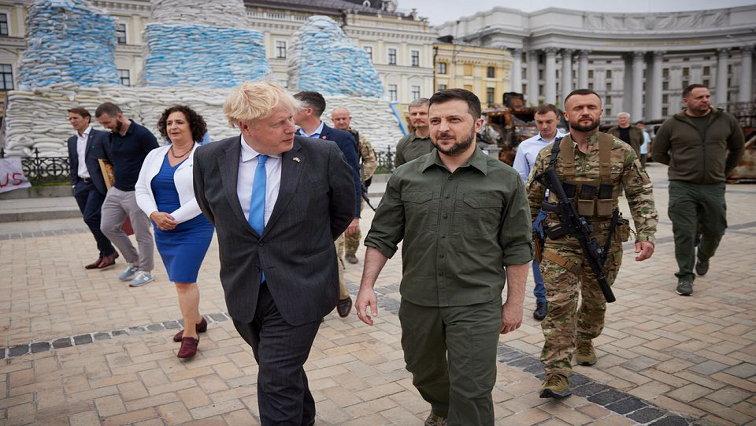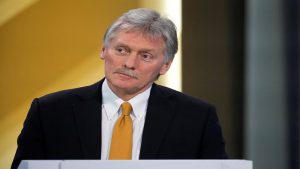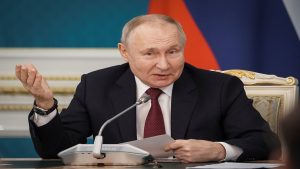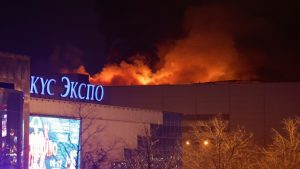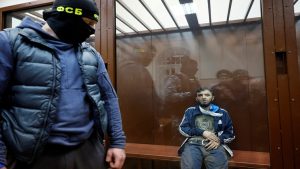With a fresh blessing for its European Union ambitions and a promise of continued strong support from Britain, Ukraine kept fighting on Saturday, with Kyiv’s troops holding out against Russian assault on a pivotal eastern city and communities pounded by more heavy shelling.
At a summit next week, EU leaders are expected to grant Ukraine candidate status following Friday’s recommendation from the bloc’s executive, putting Kyiv on course to realise an aspiration seen as out of reach before the invasion, even if actual membership could take years.
British Prime Minister Boris Johnson, who made a surprise visit to Kyiv on Friday and offered training for Ukrainian forces, on Saturday stressed the need to keep supporting the country and avoid “Ukraine fatigue” after nearly four months of war.
On the battlefields, the industrial city of Sievierodonetsk, a prime target in Moscow’s offensive to seize full control of the eastern Luhansk region, remained under heavy Russian artillery and rocket fire, the Ukrainian military said on Saturday.
“In order to improve their tactical situation, enemy units tried to carry out assault operations outside the city but were unsuccessful,” the armed forces general staff said in a daily update.
Local authorities reported overnight shelling of multiple locations in the eastern regions of Luhansk and Kharkiv and further west in Poltava and Dnipropetrovsk. Rockets hit the central city of Kryvyi Rih on Saturday, causing at least two casualties, local authorities said on messaging app Telegram.
Russian rockets also hit a suburb of Kharkiv, Ukraine’s second-largest city, early on Saturday, hitting a municipal building and starting a fire in a block of flats, but causing no casualties, a regional governor said.
Reuters could not independently confirm the battlefield accounts.
Moscow denies targeting civilians in what it terms a “special military operation” to disarm Ukraine and rid it of dangerous nationalists threatening its Russian-speaking population.
Kyiv and its allies dismiss this as a baseless pretext for war.
“The Russians are grinding forward inch by inch and it is vital for us to show what we know to be true which is that Ukraine can win and will win,” Johnson told reporters on his arrival back in Britain from Kyiv. “When Ukraine fatigue is setting in, it is very important to show that we are with them for the long haul,” he said.
Ukrainian Foreign Minister Dmytro Kuleba struck a similar tone in an article published by Foreign Policy magazine on Friday, calling on the West to keep helping Ukraine both with heavy weapons and sustained pressure on Moscow with sanctions.
“The West cannot afford any sanctions fatigue, regardless of the broader economic costs,” he wrote.
Opposite effect
One of President Vladimir Putin’s goals, when he ordered thousands of troops into Ukraine on Feb. 24, was to halt the eastward expansion of the NATO military alliance and keep its southern neighbour outside of the West’s sphere of influence.
But the war, which has killed thousands of people, turned cities into rubble and sent millions fleeing, has had the opposite effect.
It convinced neutral Finland and Sweden to seek to join NATO and helped pave the way for Ukraine’s EU membership bid.
“Ukrainians are ready to die for the European perspective,” European Commission President Ursula von der Leyen said on Friday while announcing its decision to recommend Ukraine and its neighbour Moldova as candidates for EU membership.
“We want them to live with us the European dream,” she said, wearing a yellow blazer over a blue blouse, Ukrainian colours.


